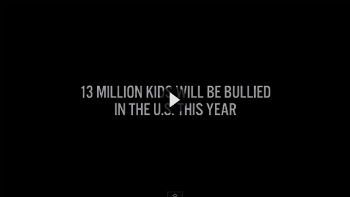
By NICK CHILES
How’s this for irony: As “Hunger Games” breaks box office records attracting kids and teens to a PG-13 movie that features teens trying to kill each other, another movie (called “Bully”) that is intended to educate kids about the dangers of bullying is fighting against the R rating that it received because of the F-word used in one scene.
The controversy sheds light on the hypocrisy that plagues Hollywood and the rating system, which has always been more sensitive to profanity and sex than to violence, whose images many could argue have a much more damaging long-term impact on children. When my girls, age 12 and 9, are watching a movie or show and a particularly passionate kiss pops up, they might turn their head or cover their eyes—particularly the 9-year-old. When they hear a curse word, they are likely to report that one of the kindergartners used it on the school bus yesterday. But as for violence? It clearly has a disturbing effect on the little one, who might literally start shaking and cringing when she sees it. Nightmares could easily follow. Confronting the notion that humans do horribly mean things to each other is deeply troubling to her—and I’m sure many other children just like her.
But that’s the real world—clearly not the world that Hollywood and the Motion Picture Association of America live in. In their world, using the F-bomb will automatically get a movie an R rating, which means no one under 17 can be admitted without adult accompaniment, while a pageantry of gore can slip under the MPAA radar screen with a PG-13. The rating system does have its value for parents—I rely heavily on the ratings in deciding whether I want my children watching a particular film—but those ratings need to be based on the relative impact that various forms of questionable material can have on children. I happen to think violence is much worse than profanity and would like to see ratings that reflect this.
In “Bully,” one of the bullies uses the F-word during one of the bullying scenes. Sounds pretty realistic to me, particularly for teenagers, who no doubt hear worse language from the back row in social studies class. The movie’s intent is to instruct teenagers about the impact of their actions on others. There is a message here—which means the movie needs to be as realistic and as close to their lives as possible to penetrate the teenage haze of indifference and cynicism.
The Weinsten Company, distributor of the movie, is fighting the R rating of “Bully” and has enlisted celebrities like Ellen DeGeneres , Justin Bieber and Meryl Streep to help them get it changed. They have even decided to release the movie in New York and Los Angeles without the rating, leaving it up to the theaters to decide whether they want to bar teenagers under 17.
So “Bully” fights for its ratings life, trying to educate teens about the dangers of bullying, while “Hunger Games,” the ultimate bullying movie, continues to pull youngsters into the theater in droves and stack up the dough. There’s something wrong with this picture.
RELATED POSTS:
1. Hunger Game Fans’ Racist Tweets: The Devaluation Of Black Children On Screen & In Real Life
2. Standing “O” for the Black Dad Who Threatened His Daughter’s Bullies!
Denene Millner
Mom. NY Times bestselling author. Pop culture ninja. Unapologetic lover of shoes, bacon and babies. Nice with the verbs. Founder of the top black parenting website, MyBrownBaby.
- Web |
- More Posts


I think you definitely have a valid point. However, Hunger Games is not about bullying at all. The kids doing the killing in the movie are victims themselves. Catchy title though.